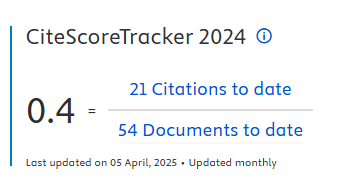Peer Review Process
The review process of articles submitted to the International Journal of Innovation (IJI) is characterized by a dual evaluation involving two sequential stages: the desk review and peer review.
In the desk review, without knowing the identity of the authors, the editors gather and analyze submitted articles to determine whether they fit the scope of the journal and the possibility that they will make a significant contribution to knowledge in the field of strategy. When necessary, the editors involve members of the scientific committee in this process.
When a submitted work does not comply with the journal’s policies, the authors will be informed of this decision within sixty days following the submission date. Articles that are approved during the desk review stage are forwarded to three specialists who are part of the journal’s team of reviewers for a double blind review, or to outside researchers who are chosen because of their knowledge of the article’s research field.
The reviewers are professors and researchers associated with stricto sensu graduate programs in Brazilian or overseas higher learning institutions. Articles are assessed considering the relevance of the theme they address to innovation, the quality of the writing, and the logical development of their theoretical review with the use of appropriate references. The adequacy of the methodological procedures, the depth and consistency of the analyses, the outline of the conclusions and the relevance of their contributions are also taken into account. All of these aspects are considered, using a pre-defined form provided to the reviewers beforehand. This stage of the review process may last up to three months, at the end of which the authors will be informed of the editor’s decision.
What are the possible outcomes?
Following the review process, the editor will make one of the following decisions:
- Accepted;
- Minor corrections;
- Corrections required;
- Rejected.
When the reviewers request adjustments to an article, at the editor’s discretion the authors are given a deadline of thirty to sixty days to incorporate the reviewers’ suggestions and make the required corrections. After the adjustments have been made and verified by the reviewers and editors, the article is proofread to check for grammar and spelling mistakes and to ensure that it is in compliance with the norms of the journal prior to the final editing process. The conclusion of this process does not guarantee immediate publication of the article. It falls to the editors to set the guidelines and decide the right time for publication.
Observation: If the reviewers have diverging opinions, the editor may select a third reviewer or reject the manuscript.







